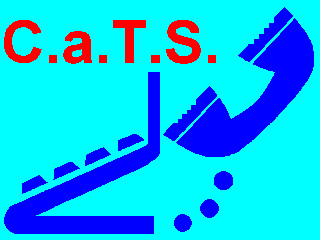DRAFT 28 JULY 1998
GUIDELINES FOR THE REGISTRATION OF LEARNERS FOR HOME EDUCATION
NB. Home education may not instill discrimination, racism or religious
intolerance in learners.
1. Home education
Home education is a programme of education provided by a parent or
legal guardian to his or her child(ren) at home.
Home education is a legal independent form of education alternative
to attendance at a public or independent school.
2. Application for registration
(1) Only a parent of a learner of compulsory school-
going age, must apply to the Head of Department to register a learner to
receive education at home for the following compulsory phases of education:
Foundation Phase only for grades 1 - 3; ages 6 - 10 years
Intermediate Phase for grades 4 - 6 years; ages 9 - 13 years
Senior Phase Grades 7 - 9; ages 12 - 15 years.
(2) The parent / guardian must complete the
prescribed form well in advance, not later than October of the previous
academic year, and furnish the Head of Department with the information
required. See the form on the last page.
(3) The Head of Department must register the learner
within 90 days of receipt of the application and provide the parent with
a certificate of registration.
(4) A parent may appeal in writing to the Member
of the Executive Council if the Head of Department refuses to register
the learner.
(5) Should a parent fail to apply for registration,
the learner will be considered to be a truant and the parent is guilty
of a offence in terms of section 3(6) of the South African Schools Act,
1996.
(6) If a learner was educated at a public or independent
school prior to being educated at home, the parent must obtain a transfer
certificate from the school.
(7) A parent may negotiate with a school of the parent's
choice for the learner to take part in the cultural, social or sporting
activities at a fee determined by the public or independent school.
3. Conditions for registration of a learner for
education at home
(1) The Head of Department must register a learner
for education at home on the following conditions:
(a) The education at home must be in the interest
of the learner, i.e. his or her fundamental right to education must be
provided for. The programme must be of such a nature that it will suit
the age of ability of the learner, and the environment must be conducive
to learning. The learner must be able to phase into the mainstream of education
at any stage, if necessary.
(b) The education which the learner receives at home
must comply with the minimum requirements of the curriculum in public schools
and be of a reasonable standard that is not inferior to the standard of
education provided at public schools. The home programme of learning must
comply with the outcomes specified for each of the above phases in each
of the following eight learning areas:
-
Language, Literacy and Communication
-
Human and Social Sciences
-
Technology
-
Mathematical Literacy, Mathematics and Mathematical Sciences
-
Natural Sciences
-
Arts and Culture
-
Economics and Management Sciences
-
Life Orientation
(2) The parent must also comply with the following conditions:
(a) Parents must show proof that home education is
in the interest of the learner. Home education may also become necessary,
e.g. for medical or disability reasons, giftedness, distance from school
and lack of transport or hostel accommodation, school referral in cases
of suspension or expulsion, or the parents are migrant workers.
(b) The learner must receive education for at least
3 hours per school day.
(c) A record of attendance must be kept.
(d) A portfolio of the work of the learner must be
kept for possible inspection by the nominee of the Head of Department (superintendent
of education responsible for independent schools).
(e) The parent should appoint an independent accredited
educator at own expense for the assessment of the learners progress. Learners
must also comply with the assessment criteria and the performance indicators
as stated for each of the various outcomes. They should write approved
standardised tests for their grade and age, where these are specified.
They should at least be tested after the first three months of home education
and at the end of every school phase. The parents must keep the assessment
results for a period of three years for monitoring/examination by the Head
of Department or his nominee who could be an official of the provincial
department of education.
4. Withdrawal of registration
(1) The Head of Department may withdraw the registration
of a learner who is receiving education at home if-
(a) the parent does not comply with the requirements
in paragraphs 2 and 3 above;
(b) he or she has reason to believe that the learner
is not receiving education at home;
(c) the education does not meet the required standard;
or
(d) the environment of the learner does not serve
the interest of the learner.
(2) The registration may be withdrawn after the Head
of Department has-
(a) informed the parent of his or her intention and
the reasons for such withdrawal;
(b) granted the parent an opportunity to make representations
to him or her in relation to deregistration; and
(c) has considered the representation received.
(3) The parent concerned may appeal to the Member of
the Executive Council against the withdrawal of registration. The parent
must appeal in writing and include documented reasons for the appeal.
(4) Should a learner be admitted to a public
or independent school the parent must notify the Head of Department.
Go to Bottom | Go to Top
| Back to WCHSA home page | Home
School Resources in South Africa
Animations supplied by Webpromotion
- 3D Web Animation
 Webdesign
by C.a.T.S. cc
Page-Layout
Last Updated : 11 August 1998
Page-Layout
Copyright © 1998 C.a.T.S.cc
Webdesign
by C.a.T.S. cc
Page-Layout
Last Updated : 11 August 1998
Page-Layout
Copyright © 1998 C.a.T.S.cc
